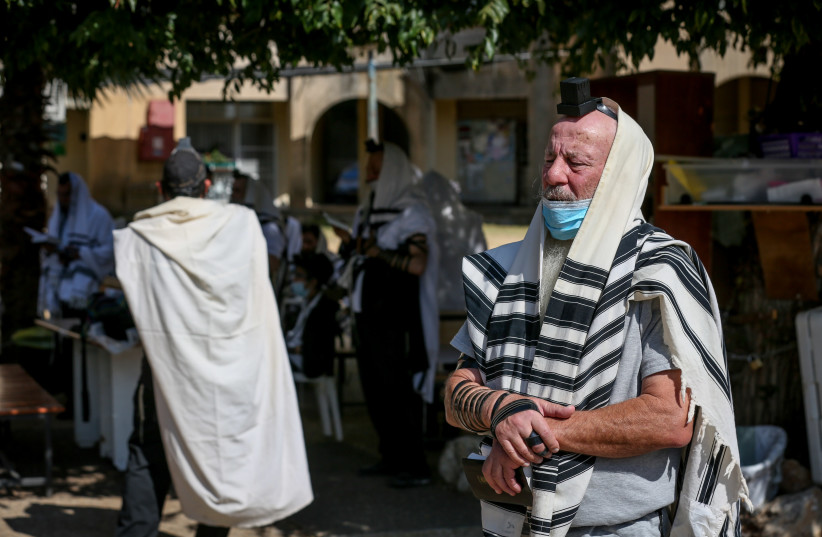Responding to public demand, Egged and Superbus have temporarily extended the operational hours of bus lines that reach the Kotel. From now until the end of the High Holy Days, the usual lines running to and from the entrance to the Western Wall plaza will run all night long. Hundreds of thousands of people seek to pray there during the Slichot period, which continues until Yom Kippur Eve, yet there is virtually no access for private cars. In previous years, night bus service was a contentious issue, but this year – perhaps because another bus company has entered the city – this service will be readily available.
Kids and skids
This year’s report by Or Yarok, the Association for Safer Driving in Israel, again puts Jerusalem at the top of the list of cities where children are at high risk of being in accidents. According to the report, 2,554 children and teenagers were hurt in road accidents in the city between September 2020 and June 2021 (the previous year’s figure was 2,488). The high number is particularly disturbing, as children and teenagers were in COVID confinement for part of the period covered. Of those hurt, three children were killed and 32 were seriously injured.
Treemendous effort
In the wake of the wildfires, conflicts and other challenges we face, 60 Jerusalemites came together earlier this week to plant the roots of a new communal Bustan (which comes from the Hebrew and Arabic for “orchard”). This joint initiative of Treelion, the Sinsila center and the city’s Shefa (embellishment) department was carried out by locals planting trees and planning spaces for all residents to enjoy nature and get to know each other. Treelion, a social movement for environmental awareness, envisions planting up to a trillion trees as part of a larger effort to aid nature.
Park place
The Israel Land Administration has approved use of a plot for parking in the Beit Hakerem neighborhood. The decision follows a long struggle by neighborhood residents, backed by city council member adv. Yossi Havilio, holder of the parking affairs portfolio.
The plot is designated for a large housing construction project, so parking will be permitted only until the project is ready to be implemented. The municipality has long favored this temporary solution, but the ILA refused to allow it until now, fearing it would hurt the project’s chances to be realized.
Prayed in the shade
The municipality will provide any synagogue congregation that wishes to pray outside during the High Holy Days with a basic 50-meter gazebo free of charge. With Health Ministry corona guidelines for indoor prayer still unclear, many communities will embrace an outdoor solution, but need shade. Distribution of the portable gazebos will be through the local neighborhood councils and community centers.

Life after the IDF
Jerusalem’s new Amit La-Dereh (traveling companion) project provides support to recently released IDF soldiers who lack means to start their civil life. The yearlong program kicks off this month for 25 recently released soldiers, mostly from combat units, who will be mentored by high-ranking municipal officials in several fields, with guidance to help them transition to “real life.” The initiative is coordinated through the Youth Center at Safra Square.
Table that motion
To facilitate open-air comfort during the pandemic last year, the municipality provided colorful outdoor seating. Those chairs and benches, which were collected and warehoused, are now returning to the streets. Coffee shops, restaurants and bars that request them will get them back for the fall and early winter season, equipping Jerusalemites to hang out without risking sitting indoors. The cost of the project, with its 350 chairs and 150 tables, is NIS 215,000.
Computer crime
The mystery of the disappearing laptops and tablets from several classrooms in a city junior high school was solved this week. A school cleaner had thrown out about 100 computers belonging to the city Education Administration into a large garbage bin he had brought to the classrooms, and removed the loot from the premises without raising any suspicion. The police conducted an investigation that led them rapidly to the suspect, a resident of the Umm Tuba neighborhood, who has been arrested.
Not all of the computers have been recovered and the damage is estimated at NIS 250,000.
At peace with the police
A special “Police for the Community” project to train young city students for basic police tasks in their own neighborhood graduated 15 youths from the Ethiopian community earlier this week. The training included lectures and side-by-side work with officers on their various community duties.
The project, which gives special attention to at-risk youth and to those who have already been caught breaking the law, enables participants to better understand the role of the police and reduces the chance of them getting involved in further legal complications.
This phase of the project focused on the Neveh Ya’acov neighborhood, where the 15 graduates live.
